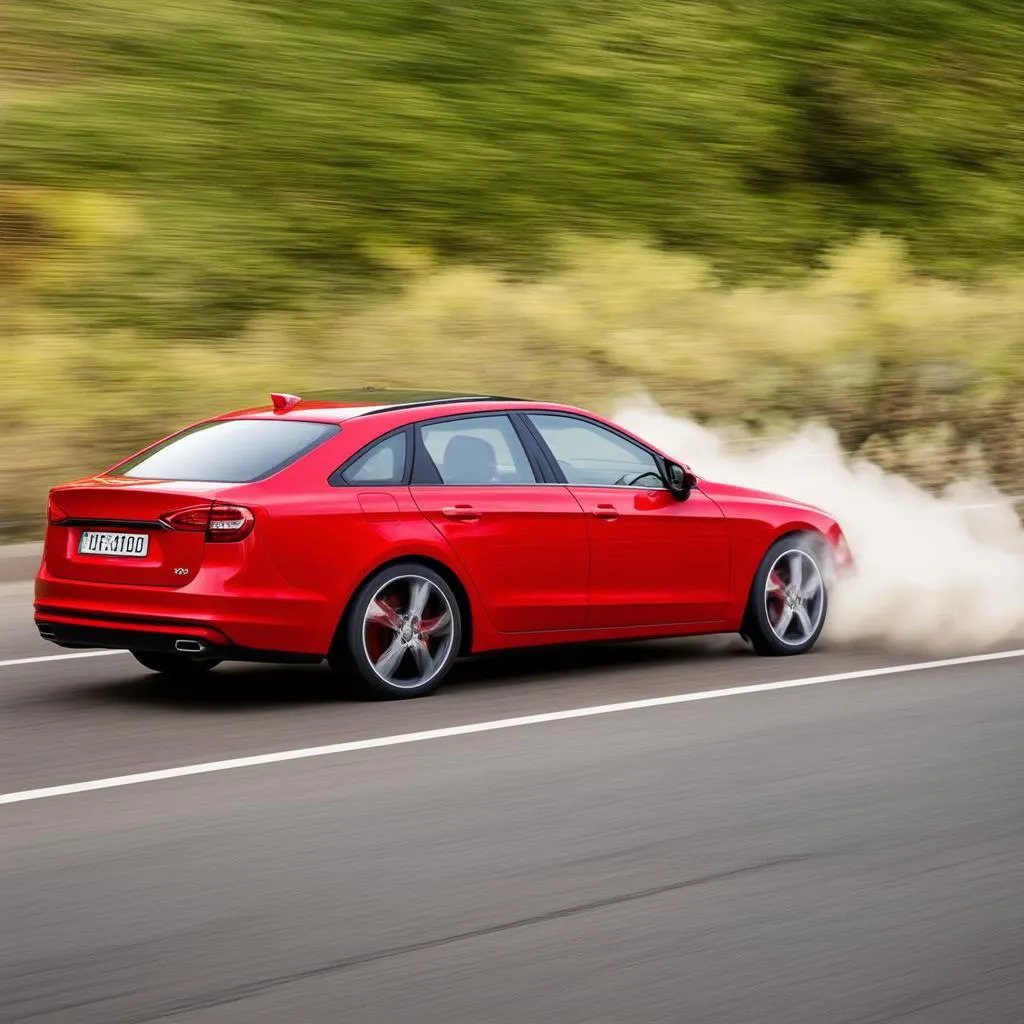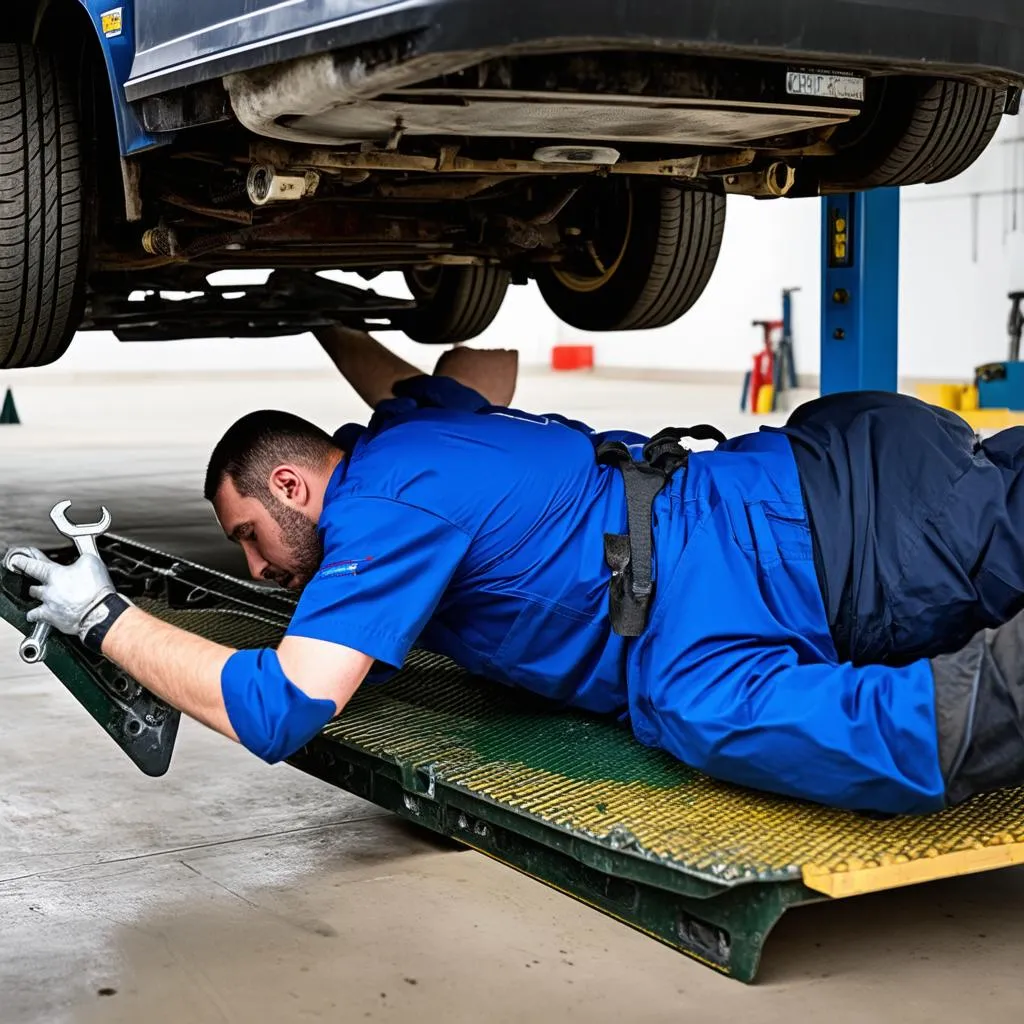You just got brand new tires for your 2015 Honda Civic, expecting a smoother ride. You hit the gas, excited to feel the difference, and BAM! Your car shakes like it’s doing the rumba. What gives?
Don’t worry, you’re not alone. Many car owners experience vibrations after getting new tires. This issue, while annoying, is usually fixable. Let’s explore the common culprits and how to get you back to a peaceful, vibration-free drive.
Why Does My Car Shake After New Tires?
This question can be looked at from different angles:
The Mechanic’s Perspective: A mechanic sees this issue frequently. They know it’s often related to simple tire installation errors or underlying mechanical issues that new tires have highlighted.
The Engineering Angle: From a technical standpoint, any imbalance in the rotating assembly (wheels, tires, axles) can cause vibrations that become more pronounced at certain speeds.
The Economic Impact: Shaking isn’t just uncomfortable; it can lead to premature wear and tear on your vehicle, potentially costing you more in repairs down the line.
Common Culprits and Solutions
Let’s break down the usual suspects behind the dreaded post-new-tire shake:
1. Improper Tire Balancing
The Issue: This is the most frequent offender. When tires aren’t balanced correctly, the weight isn’t distributed evenly, causing vibrations. Imagine a washing machine with an uneven load – that’s your car trying to drive with unbalanced tires.
The Solution: Head back to the shop where you got your tires installed. They’ll put your wheels on a balancing machine, which identifies heavy spots and adds small weights to counteract them, ensuring a smooth spin.
2. Wheel Alignment Problems
The Issue: Even slightly misaligned wheels can cause a shaky ride. It’s like trying to roll a shopping cart with a wonky wheel – it just doesn’t go straight!
The Solution: A proper wheel alignment ensures your wheels are pointing in the right direction, providing optimal handling and a smoother ride.
3. Tire Defects
The Issue: While rare, sometimes new tires can have manufacturing defects, like uneven tread or belt separation, leading to vibrations.
The Solution: If you suspect a defect, contact the tire manufacturer or retailer. They usually have warranties to cover such situations.
4. Underlying Mechanical Issues
The Issue: Sometimes, new tires can exacerbate existing problems in your car’s suspension, steering components, or even the axles.
The Solution: A qualified mechanic can diagnose these issues. They might need to replace worn-out parts or make adjustments to ensure everything works harmoniously with your new tires.
 Car shaking on a highway
Car shaking on a highway
Don’t Ignore the Shakes!
“Ignoring vibrations is like ignoring a toothache,” says automotive expert, Dr. James Miller, author of “The Complete Car Care Guide.” “It might seem minor at first, but it can lead to bigger, more expensive problems down the line.”
FAQs About Car Shaking After New Tires:
Q: Why does my car only shake at high speeds?
A: Vibrations related to tire balance and alignment become more pronounced at higher speeds due to the increased centrifugal force acting on the wheels.
Q: Can changing tire size cause vibrations?
A: Yes, if you install tires with a significantly different diameter or width than your original tires, it can affect your car’s handling and potentially cause vibrations.
Q: I just got my tires rotated, and now my car is shaking. Why?
A: Tire rotation shouldn’t cause shaking unless there’s an existing issue with your tires, wheels, or suspension components.
Need Help with Your Shaky Ride?
If your car is still shaking after checking for these common issues, don’t hesitate to contact us via Whatsapp at +84767531508. Our team of automotive experts at Diag XCar is available 24/7 to help diagnose and resolve any car problems, including those pesky vibrations. We specialize in diagnostic tools and software, including Dealer Scanner for European Cars.
 Mechanic inspecting a car's suspension
Mechanic inspecting a car's suspension
Drive Smooth, Drive Safe
Remember, a smooth ride is a safe ride. Don’t ignore any unusual vibrations. Addressing them promptly will ensure your safety and save you potential headaches and costs in the long run.
Looking for more car maintenance tips or solutions to common car problems? Check out our other informative articles on Diag XCar!